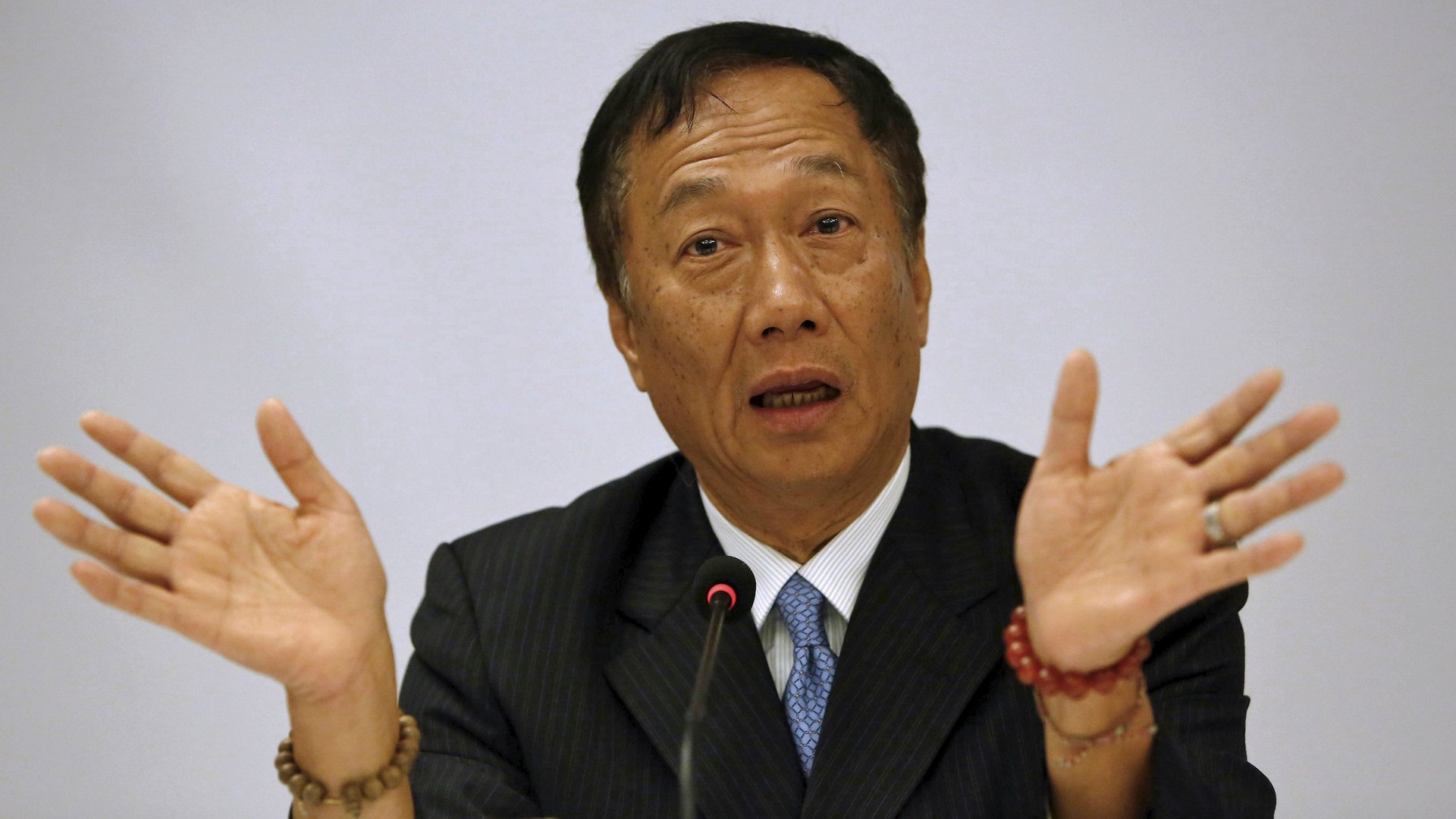Foxconn’s four-year struggle to buy Sharp has ended—but the worst is yet to come
One of the longest-running negotiations in the tech industry has finally come to a close.


One of the longest-running negotiations in the tech industry has finally come to a close.
Taiwan’s Foxconn will pay over 389 billion yen (about $3.5 billion) for a 66% stake in Japan’s Sharp and over 11 billion class C shares, according to a joint press release (pdf). That’s below the figures suggested in previous reports, which ranged from $4.4 billion to over $6 billion.
The negotiations have been marred in drama from the get-go. They began about four years ago, when Foxconn’s $806 million offer for a 10% stake in Sharp failed to materialize. Talks resumed in earnest last autumn, and seemed to have reached an end when Sharp announced that it had accepted a takeover bid from Foxconn for $6.2 billion. But as soon as Sharp called it a done deal, Foxconn delayed the purchase, having received a list that revealed hidden liabilities.
The deal has profound implications for the companies involved. For Foxconn, purchasing Sharp lets it own one of the world’s best makers of LCD screens for electronic devices. Screens are the most expensive part of the iPhone, and now Foxconn will get a bigger portion of the overall bill of materials charged to Apple.
The deal also marks a turning point for Japan’s tech industry, with companies like Sharp, Sony, and Toshiba having struggled to maintain strong sales due to competition from China. Acquisitions from foreign competitors was once unthinkable, but now they’re a reality. Sharp has suffered deep losses over most of the past five years.
As tumultuous as the negotiations were, the future may prove no more peaceful. During discussions, Foxconn chairman Terry Gou reportedly promised Sharp that there would be no job cuts following the acquisition. But days ago, Reuters reported that Foxconn was considering replacing Sharp’s top executives, including its CEO.
Foxconn has a track record of reshuffling management after acquisitions. When it purchased Taiwanese screen maker Chi Mei in 2010, Gou merged it with Foxconn’s own Innolux division. He then replaced its leaders with Foxconn management. What was once known as Chi Mei Innolux is now simply Innolux.
Integrating Sharp into Foxconn will be difficult. Aside from the language barriers, deeper cultural issues will likely surface. The hierarchical, bureaucratic style of Japanese management might not mix well at Foxconn, where Gou exerts his influence assertively. As painful as the past four years have been for the two companies, the next four might be even worse.